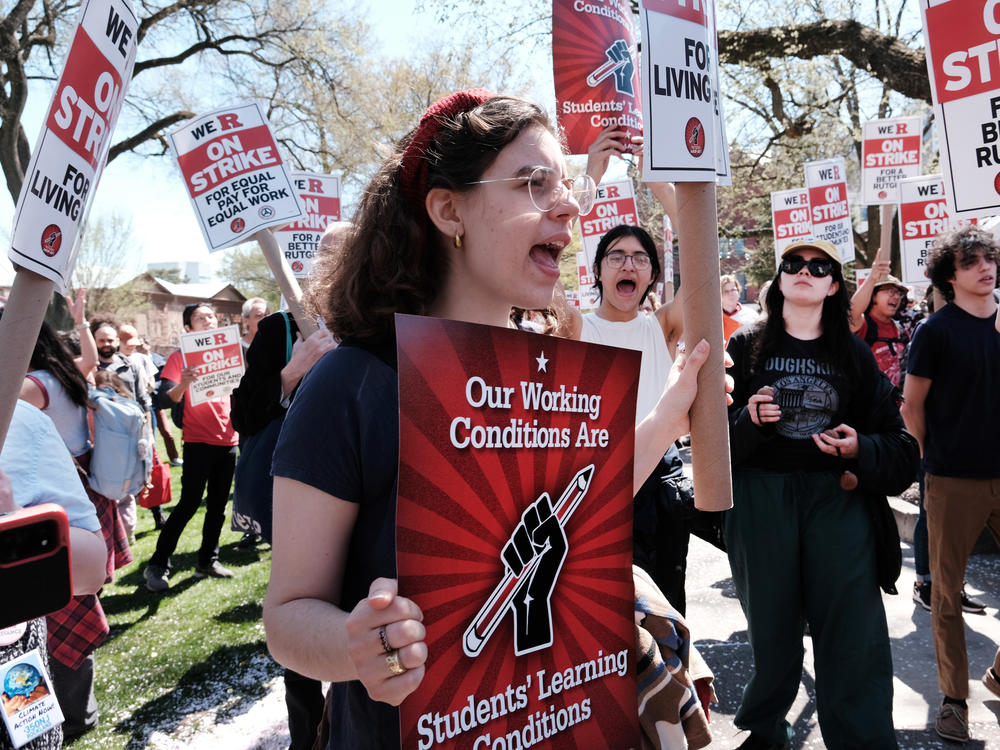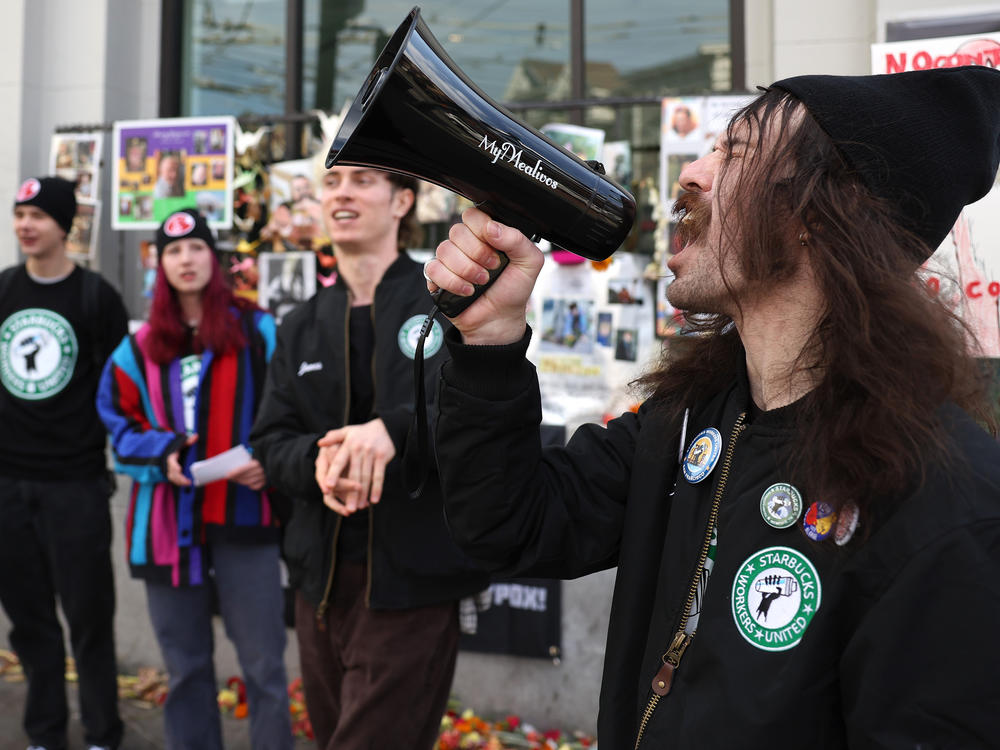Section Branding
Header Content
Gen Z is the most pro union generation alive. Will they organize to reflect that?
Primary Content
Welcome to the NPR series where we spotlight the people and things making headlines — and the stories behind them.
A recent poll shows that public support for labor organizing is the highest it's been in decades. But union membership is at an all-time low. Will Gen Z bridge that gap?
Who are they? This week, it's the roughly 9,000 workers at Rutgers University who went on strike.
- The strike comes after more than a year of unsuccessful contract negotiations, say the three faculty unions representing those striking.
- It's the first time that faculty at the state university of New Jersey have gone on strike in the institution's 250 year history, according to WHYY.
- Better pay, job stability, and benefits for employees are among worker demands.
What's the big deal? Well, the strike at Rutgers is part of a larger trend in labor politics, where more young workers are embracing unions and the potential protections they can bring to the workplace.
- Starbucks has remained in headlines over its workers' highly publicized battle to unionize, with federal labor officials finding that Starbucks had violated labor laws on multiple occasions, including shuttering pro-union stores and firing employees they had accused of misconduct.
- And while there has been a sweep in organizing efforts at companies like Amazon, Apple, The New York Times, and Condé Nast to name a few, NPR's labor correspondent Andrea Hsu reports that efforts have stalled, due to many factors, but mostly thanks to legislation that works in favor of corporations instead of workers.
- The buzz surrounding these efforts is on par with generational attitudes towards organization: one recent poll from the Center for American Progress found that the mean union approval from Gen Z was 64.3%, compared to 60.5% for millennials and 57.2% for baby boomers.
- And yet, the amount of Americans who are union members has reached a historic low. According to data from the U.S. Bureau of Labor Statistics, in 2022, just 10% of Americans reported themselves as part of a union, half of the 20% originally reported in 1983, when the Department of Labor began tracking union data.
Want more on politics? Listen to Consider This episode on how one of the expelled Tennessee lawmakers could be back in the state house soon.
What are people saying?
The Rutgers unions on their strikes:
The administration doesn't understand that we are determined to fight together for equal pay for equal work, a living wage for all, real job security, race and gender equity, and a fair salary increase. We have no other choice than to go on strike to build a university that truly values its workers and its students.
The frat bros on campus:
Rutgers University President Jonathan Holloway in an email statement on the strike:
To say that this is deeply disappointing would be an understatement, especially given that just two days ago, both sides agreed in good faith to the appointment of a mediator to help us reach agreements.
New Jersey Gov. Phil Murphy's statement that invited both parties to negotiate in his office:
So, what now?
- In a statement on its website, Rutgers suggested it may seek legal action, "To maintain university operations and protect our students, patients, and staff from disruptions to their education, clinical care, and workplace."
- President Joe Biden and Democratic lawmakers have backed the sentiments in the PRO Act, which would impose heftier penalties on employers who try to squash unionization drives.
Learn more:
- In clash with Bernie Sanders, Starbucks' Howard Schultz insists he's no union buster
- Labor's labors lost? A year after stunning victory at Amazon, unions are stalled
- You may have heard of the 'union boom.' The numbers tell a different story
Copyright 2023 NPR. To see more, visit https://www.npr.org.


